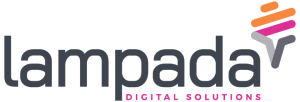There are many fantastic brains behind the Future Work Design project, which are being showcased in this blog series. This week, we talk to Charlotte Barnes from the team behind the funding.
As the Collaboration Manager, Charlotte Barnes helps to guide the project through the multiple phases of development. Working within the Department for Levelling Up, Housing and Communities (DLUHC), the funding organisation for the Future Work Design Stress Management Tool, Charlotte has a very hands-on role when it comes to tracking project progress. Charlotte supports the fundamental of the project to ensure the authorities have everything they need to progress with the phases of the FWD project.
Charlotte shares the ambition that the FWD project is for people to work collaboratively to help make sure their outputs meet their end goal which is to create something that’s shareable across councils. “Ultimately” she says, “we hope to achieve success in this project and that’s why I’m here to support to ensure the best possible outcome.”
“Everyone here at FWD is excited to see the results from this innovative tool and the ways it can support people in councils in our area and beyond.”
Charlotte told us that the team is currently at a crucial development stage with the tool as they carry out several workshops to simulate how the tool will look and function. The team are investigating how best to incorporate the tool into different councils. Charlotte said “Our hopes are that it is going to be a tool that will open the conversation about stress prevention and management for the benefit of employers and employees within the local councils.”
To find out more about Phases 1, 2, and 3 of FWD, visit https://humanfactors.hull.ac.uk/futureworkdesign/.




